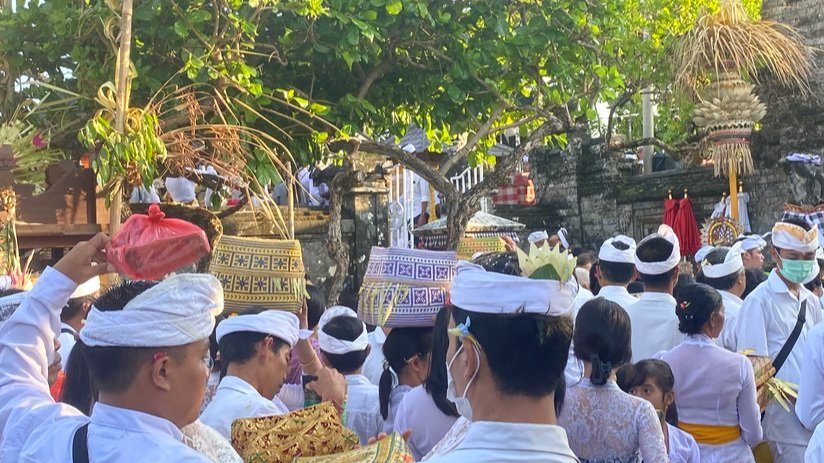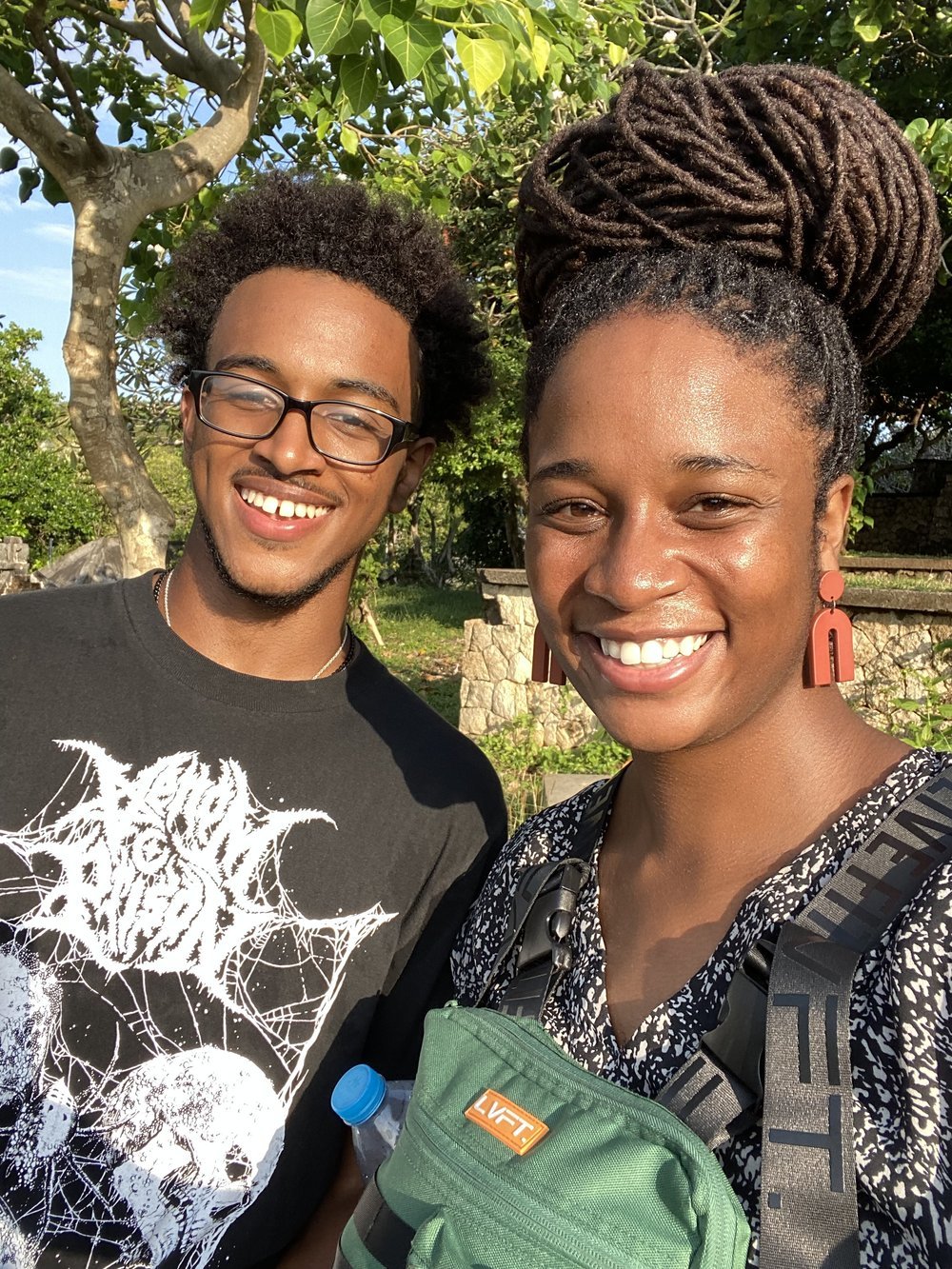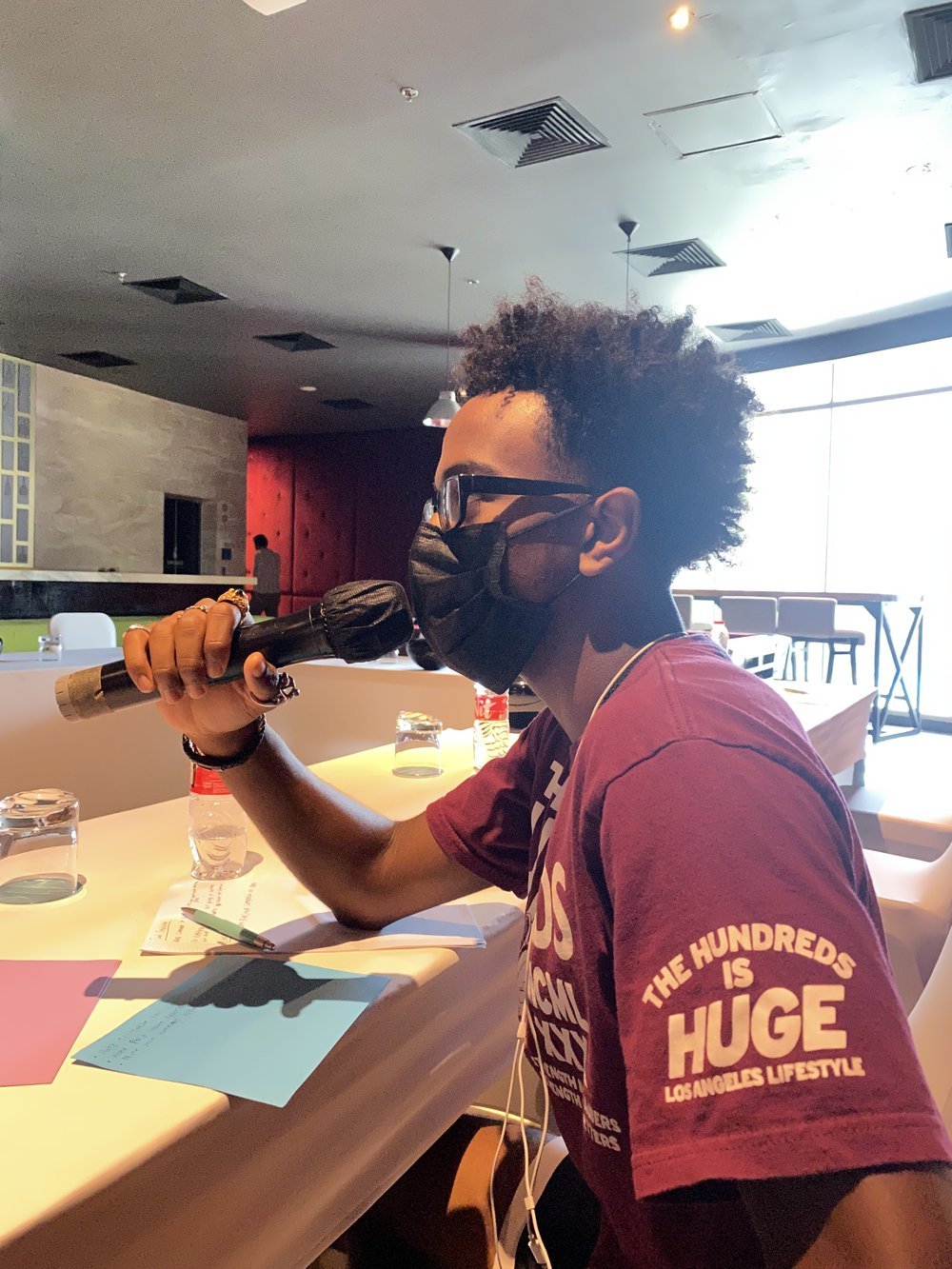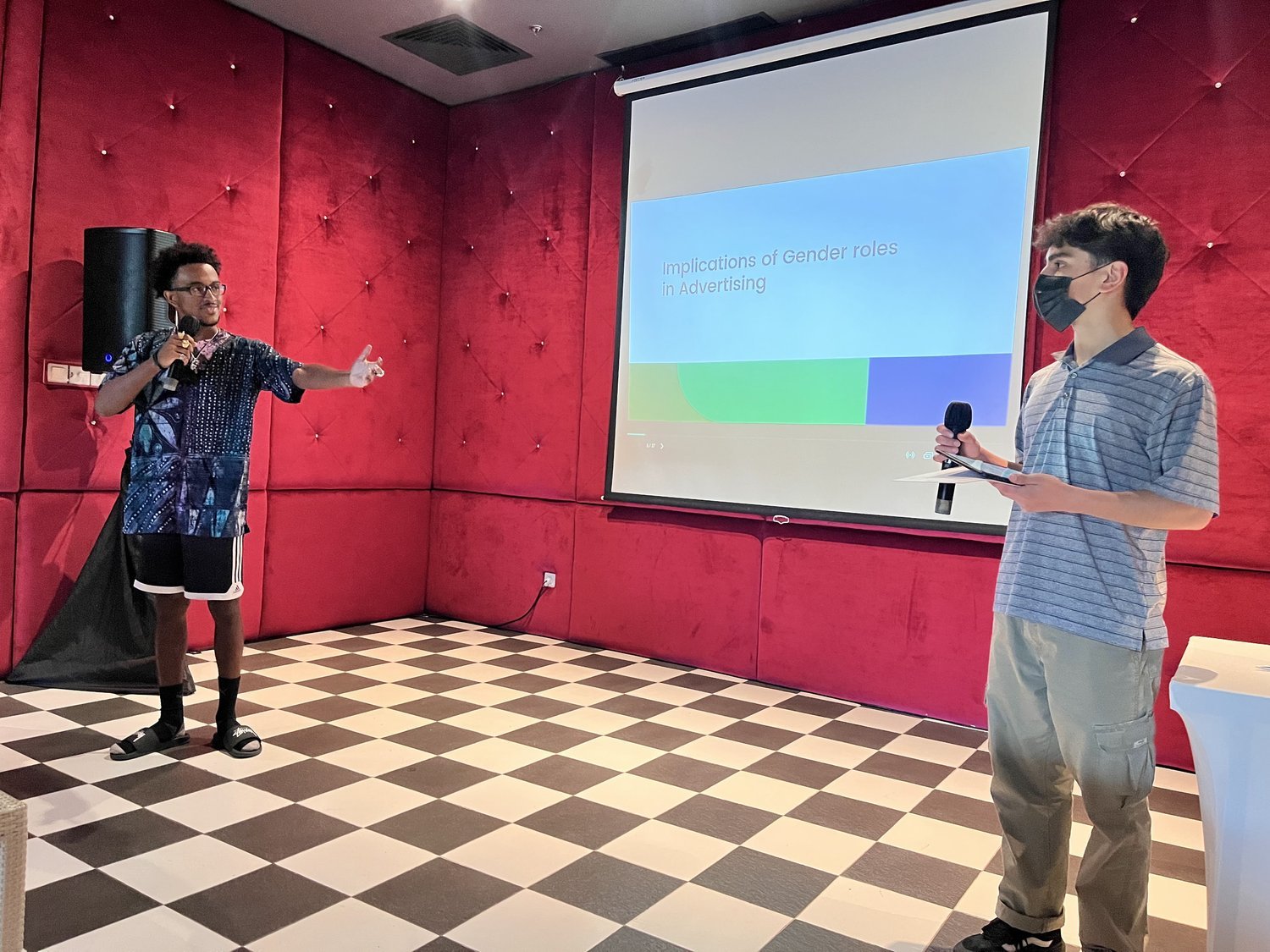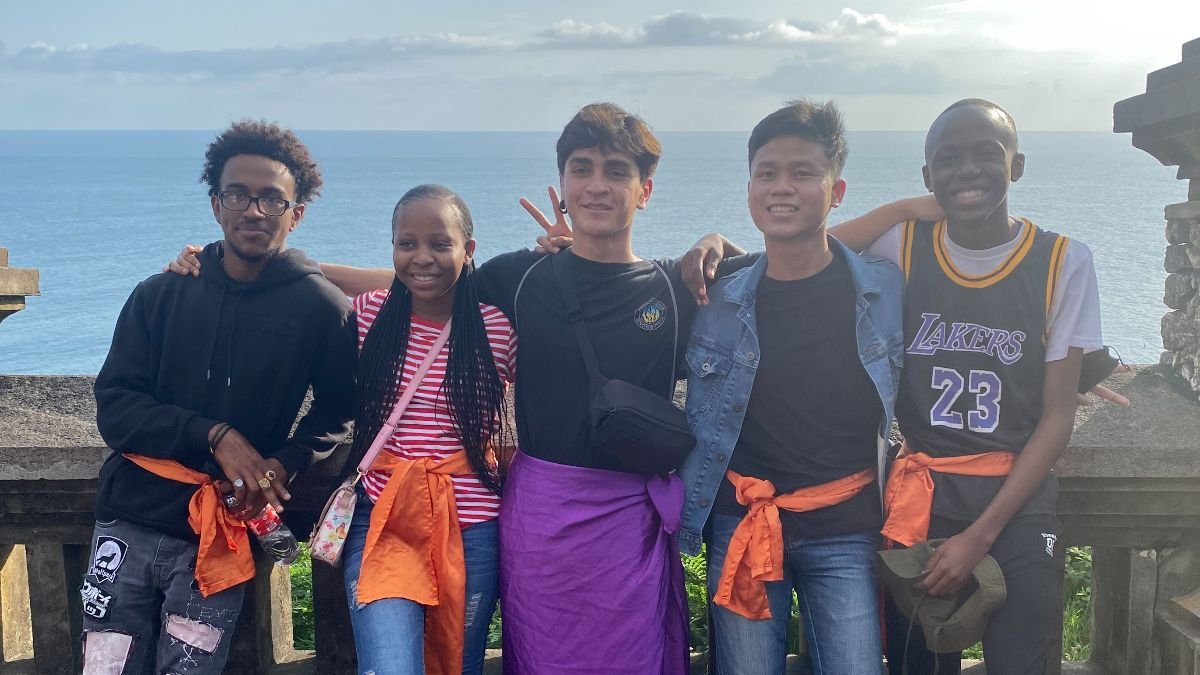Research & Evaluation (R&E) 2022 Reflection
This past year has been very eventful for the R&E division! We traveled abroad, led trainings on community research ethics and conducting qualitative research, supported schools with universal mental and behavioral health screenings, leveraged program data to inform and improve IWES’ adolescent sexual and reproductive health programming, and maintained research collaborations with numerous local and regional community-serving partners. Our activities this past year have been far-reaching, but more importantly, our efforts have prioritized analysis, dissemination, project management, and continuing to develop our internal capacity for rigorous, transparent, and community-centered research.
Learning Globally
Although this year saw a pause on formal data collection activities for our local Global Early Adolescent Study (GEAS), we participated in two significant international events that facilitated conversations about our GEAS efforts from the perspective of both our research team and that of our youth internship program, marking a new chapter in this global initiative.
From June 27th-29th, National Youth Advisory Board (NYAB) intern Ekundayo Akinlana and our Director of Programs, Jakevia (Green) Wheeler, attended the Global Early Adolescent Study’s Global Youth Advisory Board (GYAB) Summit in Bali, Indonesia. Ekundayo embarked on his first international journey to represent his city and country and – most of all – to take a seat at the table with other youth from around the world to share his lived experiences and what he feels are the most important and timely issues to address to improve the health and well being of adolescents. Throughout the duration of the summit, youth representatives from Chile, China, the Democratic Republic of Congo, Indonesia, and Malawi participated in multiple group conversations that will inform both the third phase of GEAS and youth engagement strategies across the globe.
More recently in November, principal investigators from all global sites convened for a Partners Meeting in Pattaya City, Thailand to strategize on cross-site learnings thus far in the initiative, and to further discuss the upcoming Phase 3 of the GEAS, which will aim to deepen the initiative’s focus on youth mental health and emotional wellness. During the Partners Meeting, Jakevia (Green) Wheeler presented on our GEAS journey from 2019 until now, highlighting our research efforts, goals, adaptations, and the various ways we have meaningfully engaged participating youth along the way.
Here are some specific learnings we’re keeping in mind as we shape the continuation of our GEAS into 2023:
Extra effort is required to make research and research participation meaningful and accessible to youth and families. Innovative strategies need to be employed to recruit and sustain the involvement of parents and youth in a longitudinal study.
Our data reflect an urgent need for trauma-informed school- and community-based awareness, training, intervention, and policy initiatives that recognize the high level of traumatic exposures of youth and associated adverse serious mental health symptoms.
Untreated trauma complicates the developmental trajectory of young people, and evidence shows that many mental illnesses begin in adolescence.
Interventions must target the different gendered experiences of girls and boys, with specific attention to how youth process and cope with mental health challenges.
Considerations must also be made for non-binary and gender-nonconforming youth.
Working Internally
In addition to GEAS activities, the R&E team also supported key efforts across other IWES programs and initiatives:
Completing the analysis of interviews with mothers and health care providers as part of our Maternal & Child Health program’s qualitative research study to assess our local maternal health landscape to provide solutions for improvements. Currently, we are composing a comprehensive report to share our findings and experiences of both mothers and providers prior to next year’s legislative sessions.
Supporting qualitative research activities and helping to build internal staff capacity pertaining to CHC’s Healing & Migration: A Learning Journey, as well as our HRSA-funded Care and Treatment Services NOLA program’s stigma reduction campaign.
Supporting Partners
The R&E team continued our ongoing projects with local partners as they phased into new or continued priority activities:
Universal Mental & Behavioral Health Screening in schools using the Strengths & Difficulties Questionnaire. This collaboration allows schools to assess the social, emotional, and behavioral strengths of their students and their needs for support.
Polyvictimization Demonstration Initiative. As part of the national Polyvictimization Demonstration Initiative, our team met with the Chattanooga Family Justice Center. As a newer site to the initiative, we shared our experiences with data collection and management pertaining to our local research efforts and the Polyvictimization Tool with the Chattanooga team. Additionally, in May, we presented our local findings at the Annual International Family Justice Center Conference.
Healthy Neighborhoods Project (HNP). Data analysis and writing of the qualitative research conducted for the Healthy Neighborhoods Project (HNP) continues as we strategize and plan to share our learnings from local residents. In June, we presented the HNP to high school students participating in a summer program in environmental health and discussed the various ways our environment can impact health and the physical features that could improve our connection to our neighborhoods.
IRB BOARD
Lastly, our community Institutional Review Board (IRB) Liaison and Project Manager, Jen Latimer, led us in a Fall learning series! Our community-based IRB reviews IWES’ research projects and advises us on how to both comply ethically and engage in projects that benefit our community. Attended by IWES staff, current IRB members, and other members of our research network, the learning series consisted of 3 sessions intended to build confidence and capacity among current project leads and future leads: Intro to the IWES IRB, The Art of Submission, and Best Practices in Community-Engaged Research. The goal of the learning series is to increase our broader community’s capacity around ethics, justice, and community engagement in research where, ultimately, we aim to make this training series accessible and free to anyone interested in learning more through a virtual format. This series is only the beginning as board members continue envisioning how it will grow. Besides conducting the series, this year, the IRB began to convene for in-person meetings and met six times to ensure 17 research protocols were best situated to continue serving participants. This fall, we also welcomed two community members into a year of transition into Co-Chairing our IRB.
Looking into the new year, we are excited to continue supporting our internal IWES programming, growing our departments’ capacity, engaging youth in Phase 3 of the GEAS, growing our research and evaluation initiatives with local community-serving partners, and continuing to set a new paradigm in community-engaged and serving research.
